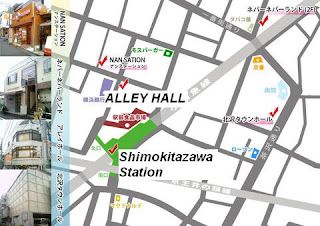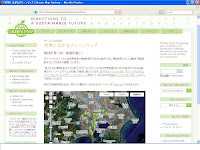PV EXPO 2008
PV EXPO 2008 is presently going on at Tokyo Big Site through tomorrow (Friday). This is the world's first international photovoltaic power generation expo with 301 participating companies from 17 countries. In addition to the PV panels themselves that one would expect to see at such an event, there are exhibits of the equipment and components used to manufacture and install them. The latest technologies are being demonstrated such as thin film systems which can be applied to any surface, and transparent panels which can be used as a window. Japan - Land of the Rising Sun - is the world's leader in PV applications. " The photovoltaic (PV) cells and modules market in Japan, estimated to be 640 Megawatts (MW) in capacity or 209 billion yen in value of shipment, will rapidly grow to 2,350 MW or 665 billion yen in value in fiscal 2008 by recording an average growth of 30 to 40% every year ". This in a marketing report "New Energy System Market (PV Power System





















